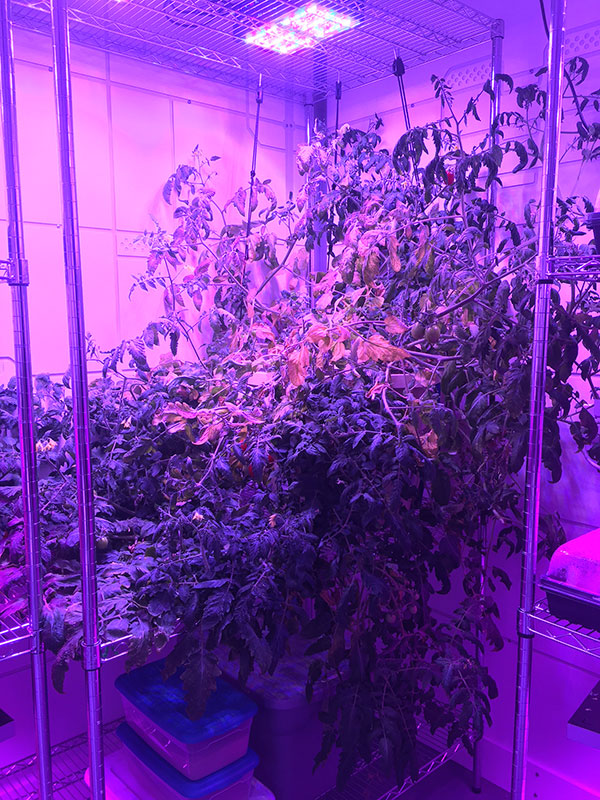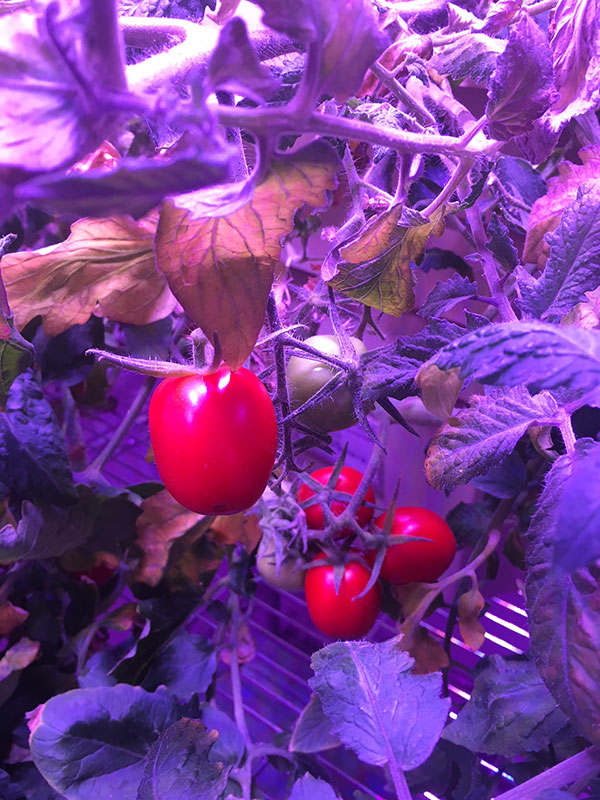In the Mars Base 1 Botany Lab, we have just completed a TomatosphereTM experiment in which we grew four tomato plants hydroponically. Of these plants, two sprouted from seeds that spent some time on the International Space Station (ISS), and the other two from seeds that remained on Earth. Our task was to monitor the growth and development of these plants and note any differences. In this “blind” experiment, we did not know in advance which group of seeds had been on the ISS.
Astronauts aboard the International Space Station are researching how to grow food, essential for humans during deep space travel. Traveling to Mars could take more than 2 years! The results of our experiments help students understand all of the elements that sustain life off of this planet. Tomatoes are particularly important, not only for the fruit, but because water evaporated through their leaves is purified.


Although the experiment is not yet over, we actually have not noticed a significant difference in the plants! All have grown to approximately the same size at the same rate, flowered at the same time and are now producing fruit. It’s incredible that seeds exposed to microgravity and the controlled environment of the ISS were not greatly affected, in comparison to seeds that remained on Earth. Did you predict that outcome?
Keep track of the growth of these and other plants in the Botany Lab by following the Mars Base 1 Botany Lab Facebook page. Plus, if you would like your class to participate in a Tomatosphere study, learn more by visiting The First Seed Foundation’s TomatoSphere Program.
Students ages 10 and older can participate in the newest educational program, Mars Base 1, and conduct their own experiments in the Botany Lab. After a trip to Mars Base 1, your students will leave Mars with a better understanding of how to adapt to life away from Earth. It is an experience unlike any other on the planet!
Reserve Your Trip




